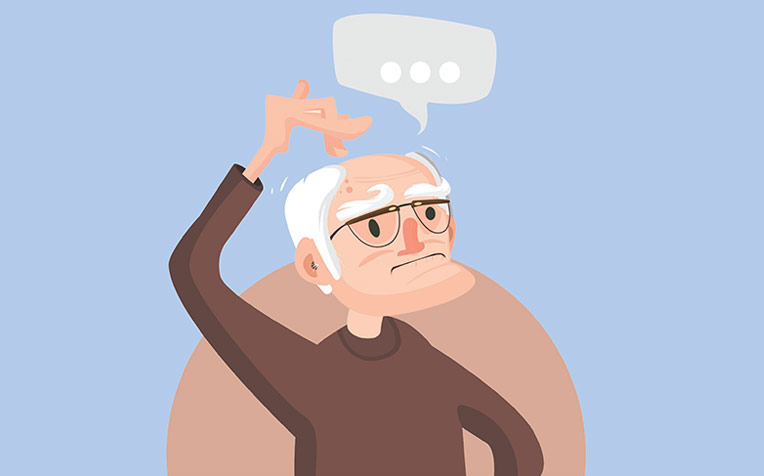IT’S been 21 years since the Dementia Awareness programme was launched in the state of Goa. This year, Alzheimer’s disease International announced the theme ‘Know Dementia, Know Alzheimers’ to highlight the importance of recognising the signs of dementia as the first step to getting appropriate care.
On World Alzheimer’s Day, we got to speak with DR AMIT DIAS from the Department of Preventive & Social Medicine at Goa Medical College and the founder secretary of the Dementia Society of Goa to throw more light on the journey through the diagnosis of dementia. According to the good doctor there are 10 vital signs of dementia and there are 10 tips for caregivers to help them care for their loved ones who may be slipping into dementia….
QUESTION: What are the highlights of the awareness campaign this year?
ANSWER: ON World Alzheimer’s day this year Alzheimer’s Disease International, UK released a report called “Journey Through the Diagnosis of Dementia” wherein they highlight that globally in 75% of people dementia is not diagnosed. This number is as high as 90% in the low and middle income countries where stigma and lack of awareness remain major barriers.
In a very symbolic gesture the iconic Atal Setu over the river Mandovi in Panaji was lit up in purple, the theme colour for the awareness campaign on World Alzheimer’s Day. The color purple has been selected as the symbolic color of the fact that we need to bridge the awareness and treatment gap for dementia in our country. I am very grateful to the GSIDC and the Dean of GMC for arranging this Atal Setu show for people to take note of and be conscious of dementia.
The medical fraternity is now better equipped to make a diagnosis and provide care — but people must cross the bridge to get there. Raising awareness is just the key and therefore, the theme for this year’s Alzheimer’s Awareness Month is: Know Dementia, Know Alzheimers.

Q: Can you throw more light on the difference between dementia and Alzheimer’s disease?
A: Dementia is the umbrella term for a group of progressive, degenerative brain conditions, that result in memory loss, difficulty in thinking behaviour and emotion. It is not a normal part of aging as it is often thought to be. Alzheimer’s disease is the most common form of dementia and contributes to almost 60% of all types of dementia.
Q: Is it a major public health concern in our country and state?
A: It certainly is a major concern in our state as we have a higher life expectancy compared to the national average, so people live longer and also have the risk of getting health problems associated with aging such as dementia. Secondly, a large proportion of our adults migrate abroad for better prospects, leaving behind their parents who are elderly. If they get dementia, they find it difficult to attend to them. The traditional joint family system is dwindling away. People may live in a huge mansion, but it’s like am empty nest.

If you look at the numbers itself, we have an estimated over four million people with dementia in India. The World Health Organisation and ADI estimate that this number is around 55 million in the world and set to reach 139 million by 2050. There are 10 million new cases every year and approximately one every three seconds. What is worse is that the numbers are rising at a much faster rate in the low and middle income countries such as ours. WHO has declared it as a major public health concern in the world.
Q: What are the key findings of the World Alzheimer’s report released on World Alzheimer’s day?
A: The report titled “Journey Through the Diagnosis of Dementia” is based on a survey by clinicians and caregivers from around the world of those who suffer dementia. It reports that only 45% of the caregivers and people with dementia feel that they have adequate information at the point of diagnosis.
Eighty-three per cent said that the COVID-19 pandemic delayed access to people with cognitive decline for assessment. The report also outlines the standards for care and recommends the use of MRI/ CT scans and in cases, neuroimaging using PET and SPECT, as this may improve diagnosis and care pathways by revealing the specific diseases underlying their dementia. The cerebrospinal fluid could also be tested for amyloid beta and P-tau.
The US FDA has recently approved a new disease modifying drug called Aduhelm (aducanumab). It may be possible to treat early stages to dementia, however further studies are needed. The report recommends that health care systems should introduce annual brain health check-ups for people above the age of 50 years to be able to implement risk reduction strategies.
There is a need for action at the levels of policy makers, health care teams, and the community at large. It has been my dream to make Goa the first dementia-friendly state. We have an extremely good health care network and committed people at all levels. Dementia services are also now part of the national programme for the health care of the elderly.
Q: Tell us more about the move to prevent dementia campaign
A: This is based on research published in the Lancet last year that encouraged physical activity and cognitive stimulation exercises. The #movetopreventdementia, is a campaign to encourage physical activity (move) as it is found to be an important factor for preventing dementia. Given the COVID restrictions, we are conducting this campaign on social media. In this we challenge people to learn a few dance steps on the Justin Wellington song, IKO IKO, and upload their video on social media to express their support to dementia with the hashtag #movetopreventdementia.
By doing this we hope to attract attention, raise awareness, make a commitment to fight dementia and encourage others. The people in Goa love to dance and we hope this will catch on and we will spread awareness in an exciting and unique manner. There is a scientific basis for the campaign. Dance is a form of physical activity and at the same time the synchronised steps action is a cognitive stimulation exercise. Research has shown that if we focus on 12 risk factors, we can reduce the chance of getting the dementia and delay it by 40%.
The move to prevent dementia is an enjoyable activity and involves new learning and releases stress which is also important for prevention of dementia. The programme was launched on the eve of World Alzheimer’s day at a unique musical event by the Silver Linings, held virtually. On the eve of Alzheimer’s day we are having a musical awareness programme with the talented band Silver Linings on facebook. We also had a spotlight series on Caregivers of people with dementia. Two of our caregivers from Goa spoke about their journey though the diagnosis of dementia and gave the message of hope that life does not end with the diagnosis of dementia.
Are there any tips that you could give the caregivers of people with dementia?
Our research has shown that Caregivers of people with dementia often suffer from burnout. They need to prioritise their health as well. The family should balance the care. I found that it is often a single person who is involved in the care. They were more commonly females. There are some golden rules that caregivers should bear in mind.
Q: Any final message for the people?
A: We need to try to make Goa a dementia-friendly community and it starts by making dementia-friendly homes. We need to be friends with people with dementia and to focus on risk reduction, and above all — spread awareness about dementia. At the same time we have to remember what we are treating and deal with people who are human beings.
(Dr Amit Dias is an assistant professor at the department of Preventive & Social Medicine at the Goa Medical College, he was one of the experts on the Lancet Commission that published the scientific evidence on Prevention of Alzheimer’s disease and other causes of dementia. He has been involved with the Alzheimer’s awareness movement in the state of Goa and the country for the last two decades and started the Move to Prevent Dementia Campaign.)
